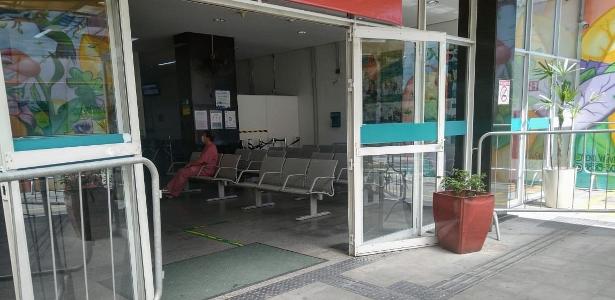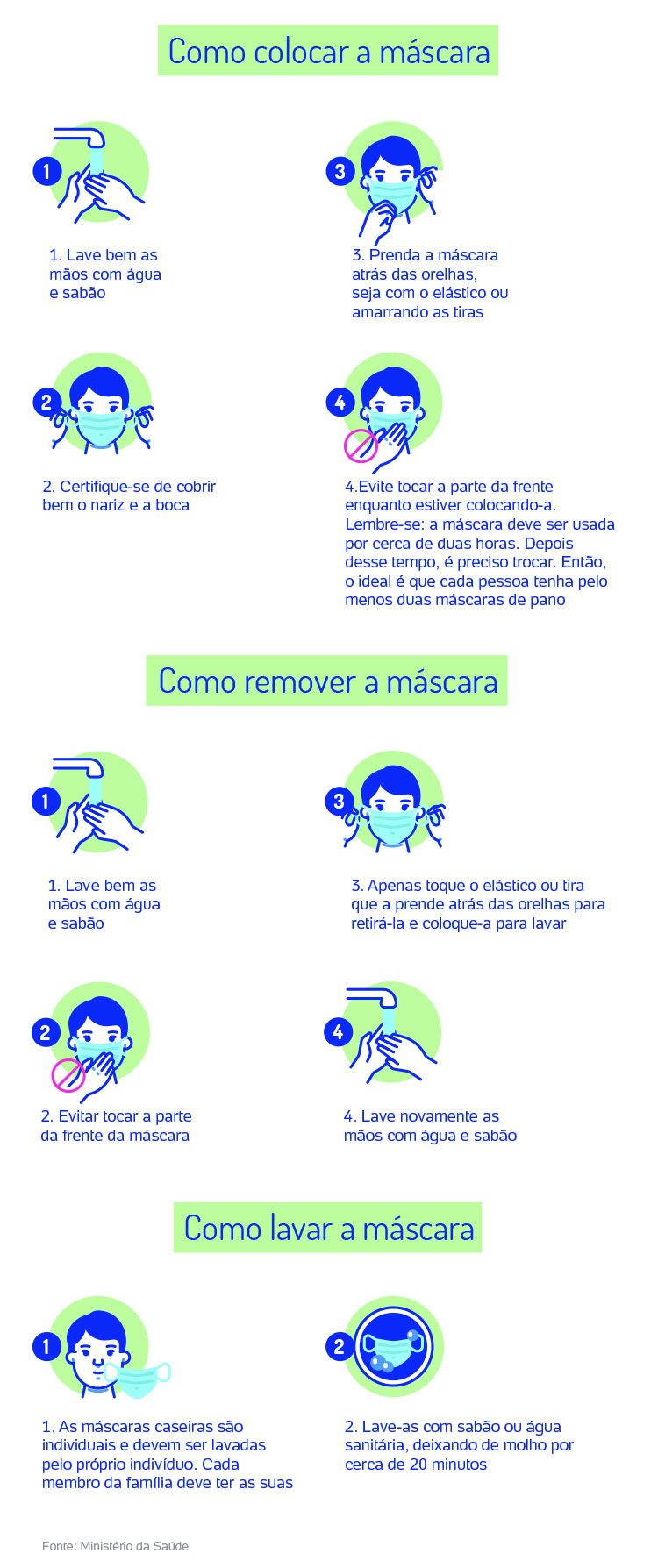
[ad_1]
The number of people infected with the new coronavirus in hospitals is only increasing. But at the same time, doctors have noticed a significant reduction in patients with diseases that used to be the majority in the corridors: cancer and heart disease.
The main hypothesis of this “disappearance” is the fear of Sars-CoV-2 contamination, which they believe is more dangerous than these other diseases, which is not true. “The risk of having a heart attack at home and dying from not looking for an emergency room is much higher than receiving the covid-19,” says Pedro Silvio Farsky, cardiologist at the Israelita Albert Einstein Hospital and the Dante Pazzanese Institute, both in São Paul
The expert confirms that he and his colleagues noticed a drastic reduction in patients with cardiovascular emergencies, such as heart attack and stroke. “Now, people go to the hospital only when the condition worsens, which is very dangerous,” he says.
Treatment for these diseases is only effective if early care is provided. According to Farsky, this window of effectiveness lasts a few hours for a stroke and up to 12 hours for a heart attack.
Ricardo Costa, an interventional cardiologist and president of SBHCI (Brazilian Society of Hemodynamics and Interventional Cardiology), says that heart attack is the leading cause of death in Brazil and worldwide. “This is a medical emergency that must be dealt with quickly. Lack of treatment or delayed treatment can be fatal or leave serious consequences in the heart,” he warns.
What about cancer?
Oncologists reveal that the same problem has been seen in people with cancer. “There was a significant decrease in the number of patients who continued or started their cancer treatments, whether surgical or clinical, at this time of the pandemic,” says Rachel Riechelmann, director of the Center for Clinical Oncology at the ACCamargo Cancer Center, in São Paulo.

Suspicious signs of heart attack should be taken seriously
Image: iStock
Even in pediatric oncology centers there was a decrease in patients. The number of new consultations in the NGO Tucca (Association for Children and Adolescents with Cancer), for example, fell by 85%. Of 25 new visits per month, in April that number reached just five. The organization is a partner of the Hospital Santa Marcelina, where the only pediatric oncology center was created in the eastern part of São Paulo.
“Cancer has not stopped being serious due to the coronavirus. On the contrary, we are in a worse situation, because we must continue treating our patients in a public calamity situation,” says Sidnei Epelman, director of the Department of Pediatric Oncology at the Hospital . Santa Marcelina, founder and president of TUCCA.
According to Riechelmann, although the fear of contagion is understandable, escaping from the hospital in these cases is very dangerous. “Cancer is a disease that cannot wait and the pandemic should continue with us for a long time,” he says. The success of cancer treatment is closely related to early diagnosis and treatment.
Interruption of treatment can cause from an increase in the size of a tumor to a recurrence of the disease (which is when the patient has already treated a cancer, but the disease returns).
Riechelmann explains that there are patients who need chemotherapy or radiotherapy before surgery, for example, and if they interrupt this treatment, they can consequently see the change in tumor size and surgery is no longer recommended. “In addition, there are patients who could undergo simple treatments, but who postpone them end up undergoing more complex options.”
The phenomenon of the decrease of these patients in hospitals is not only noticeable in Brazil. A survey conducted by the site Angioplasty.Org, showed that the number of people who died at home from a heart attack in New York, in the United States, between March 30 and April 5, was 800% higher than in the same period in 2019.
The survey also revealed that in the period there was a drop of 50% or more in the number of people treated in hospital emergencies for the same type of problem.
It is unknown whether these cardiac arrests had anything to do with the coronavirus. But the very Angioplasty.Org He says many of the cases could have been resolved immediately, saving those lives.
Emergencies must not be ignored
Of course, one should not take unnecessary risks and the social isolation and restriction of movement aim precisely to minimize the risk of infection by the new coronavirus. However, this cannot override certain emergency situations that offer a higher risk of death, such as a heart attack, for example.
According to Costa, in the case of a heart problem, it is important to pay attention to the signs to know when it is an emergency. In general, the typical signs and symptoms of heart attack are progressive and worsen.
The doctor says that the signs are burning or pain in the chest that can radiate to the arms, shoulders, neck, chin, stomach or back, and may be accompanied by discomfort, sweating, nausea, vomiting, feeling of tiredness, weakness and shortness of breath.

Stopping cancer treatment can lead to an increase in the size of a tumor until the disease recurs.
Image: iStock
But less specific manifestations can occur in elderly patients and in people with diabetes. The most important thing is to be vigilant and do not hesitate to seek medical attention immediately if you suspect.
Patients with known risk factors for coronary heart disease should receive even more attention, as they are a higher risk group. “The warning message remains: the heart attack has no age or social class and does not respect quarantine,” says Costa.
If the fear is of people with coronaviruses in the hospital, it is important to know that the visits are physically separate. “It’s safe to avoid contagion. At Einstein we walk away. No one moves from one side to the other,” says Farksy.
According to him, even in the complementary exams, the equipment is different, as well as the rooms. “It is an unjustifiable fear. Laboratories and hospitals have protocols to protect these patients,” he says.
Epelman also claims that the pediatric oncology space in Santa Marcelina is currently intended only for those who need to continue treatment.
At A.C. Camargo, symptoms are analyzed at the institution entrance for all patients and companions and there is also a separate entrance in the emergency room for flu-like symptoms. For cancer patients with symptoms of covid-19, there is an online exam, so they travel to the unit only if really necessary. “In addition, we maintain complete segregation of patients with coronavirus,” says Riechelmann.
The visit of cancer patients to hospitals and clinics, in many cases, is daily. Therefore, even at this point of care, the recommendation is that they follow the protocols established by doctors and institutions. Some measures, such as wearing a mask and hand hygiene, have already been taken during the routine and should now be stepped up.
In general, the maxim is: If there is an emergency, don’t think twice about seeking help from the hospital. Unlike households, institutions are equipped not only to care for people with covid-19, but also for those with other life-threatening health problems.
